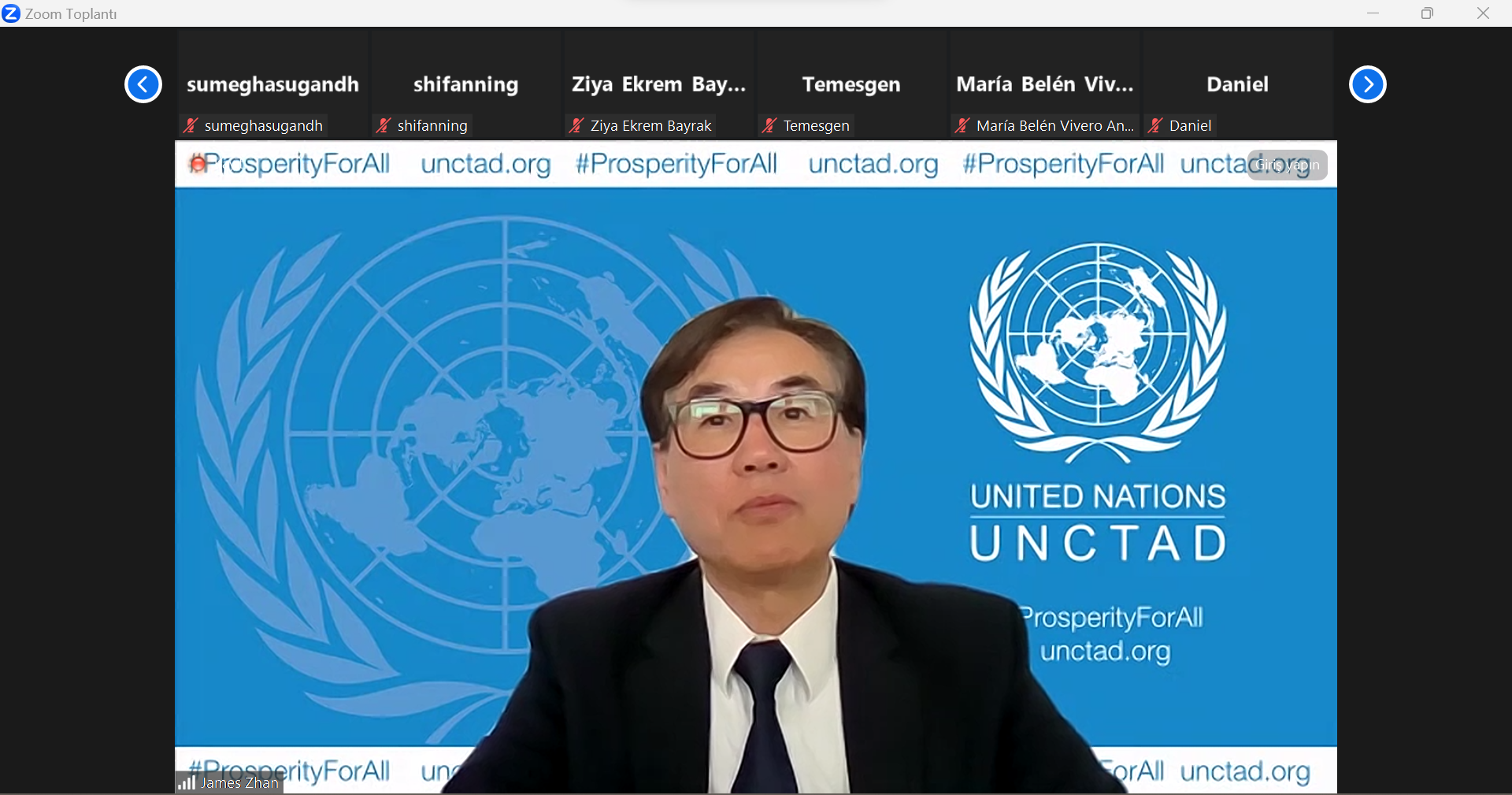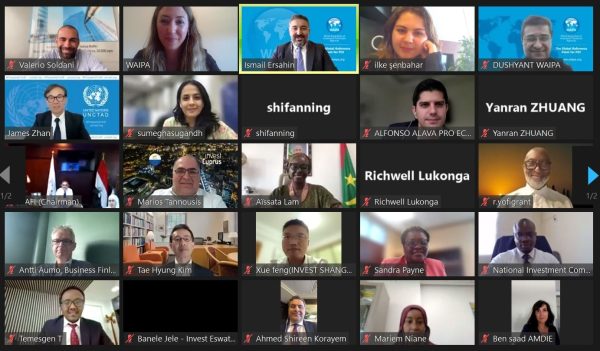Every year WAIPA organizes a CEO’s round table to discuss new trends in FDI and the investment landscape. Last week, WAIPA had the privilege of hosting Mr. James Zhan, lead author of the World Investment Report 2023 to share his valuable insights into the global FDIs and FDI trends pre- and post-pandemic, highlighting their impact on the policy implications.
The session was moderated by Mr. Ismail Ersahin, the CEO and Executive Director of WAIPA. According to the insights shared by Mr. Zhan, before the pandemic, FDI trends were stable, but they plummeted significantly in 2020. Cross-border mergers and acquisitions, as well as financial transactions in advanced countries, played a pivotal role. Europe saw a drastic decline while developing countries experienced historic highs, accounting for over 70% of FDI flows. Africa, however, saw a decline to 14%. In 2021, a single FDI transaction turned the tide.
To dive deeper into the regional FDI trends, over the past two years, Asia has dominated global flows, accounting for over 50% of the total global FDIs. While Hong Kong and China saw declines, Asia experienced an uptick. India witnessed a strong influx of investments, and Latin America and Africa saw a 51% increase, primarily driven by mineral and fossil fuel extraction. Industries like infrastructure have seen a steady rise, contributing to economic stabilization.
According to Mr. Zhan, the future of investment promotion looks promising and the investment landscape is showing signs of recovery, marked by a shift from pessimism to cautious optimism, particularly in developing countries where greenfield investments are leading the resurgence. Advanced countries, on the other hand, experienced relatively modest declines. However, there’s still a need for substantial growth for a full recovery. Factors like high inflation and uncertainty continue to pose challenges.
However, a massive change is brought by investment undertaken in sustainable development and the SDG sectors. New policy reforms and introduction to new projects, announcements, and tax resilience schemes are introduced to positively influence investments for sustainable development, especially renewable energy. Additionally, Equities tied to green initiatives and climate change are promising long-term growth potential. Technology, including 3D printing and electronic vehicle production, is a significant force shaping global FDI trends.
The webinar session was attended by several of our steering committee members including Annti Aumo from Business Finland, Yofi Grant from Ghana Investment Promotion Centre, several national Investment Promotion agencies including Aissata Lam, Mauritania, and Marios Tannousis from Cyprus.
Yofi Grant highlighted the importance of accurate data for attracting FDI, particularly in Africa where accessing reliable data poses a significant challenge. Questions were raised about the effectiveness of events like the US Africa Conference and Compact with Africa in generating desired FDI attraction.
Aissata Lam from Mauritania emphasized the need for policy considerations and ongoing efforts to revise the investment code with a focus on achieving Sustainable Development Goals (SDGs). Conducting a cost-benefit analysis, involving data from tax offices and governmental departments while ensuring confidentiality, was emphasized. Digitalization was identified as a pivotal process in this regard.
Marios Tannousis from Cyprus discussed incentives extended to tech companies in 2018 and 2019, with a priority on encouraging innovation, startups, and Public-Private Partnership (PPP) projects. However, a challenge lies in attracting investments from well-capitalized investors. The question was raised on how to effectively showcase these projects to secure serious funding from investors with a focus on sustainability, climate initiatives, and future ventures.
To conclude, the WAIPA-UNCTAD WIR23 offered a comprehensive view of global FDI trends and their implications for policy and sustainable development. The event concluded with a 5-minute presentation on the World Investment Conference (WIC), emphasizing its importance in shaping future investment strategies. We look forward to further enhancing our cooperation and commitment during our forthcoming participation at the World Investment Forum 2023, Abu Dhabi and we extend you a warm welcome to the 27th WIC in New Delhi, India from 11-14 December.



